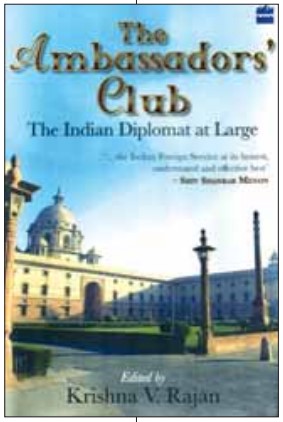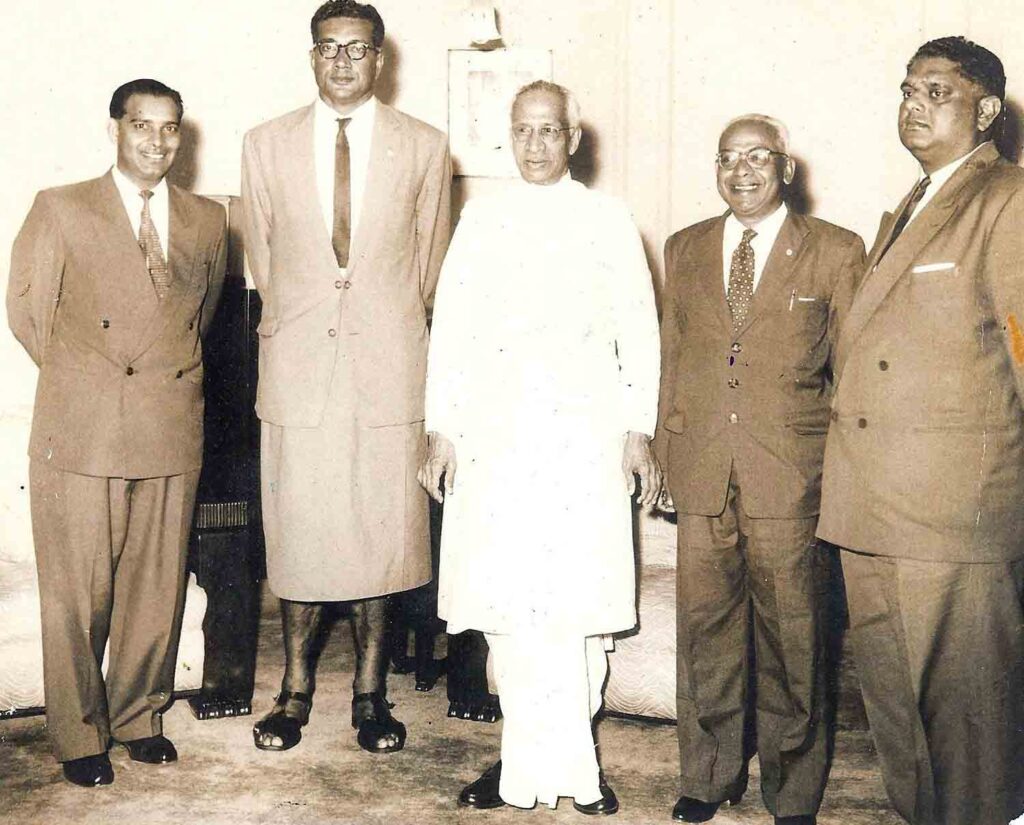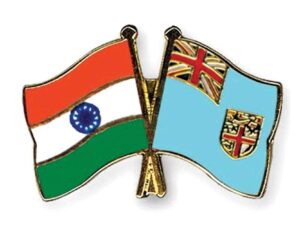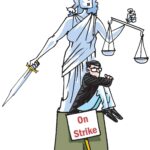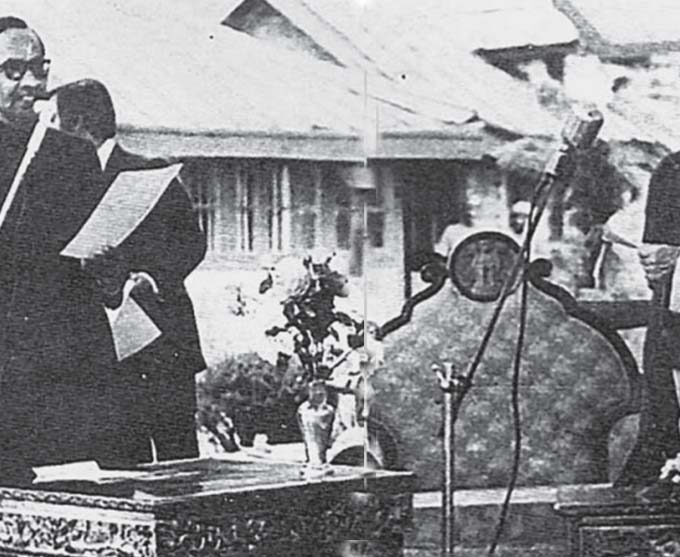- Cover Story
- Governance
- Globe Scan
- Corruption
- State Scan
- Talk Time
- Cover Story
- Governance
- Globe Scan
- Corruption
- State Scan
- Talk Time
Recent Posts
© Copyright 2007 - 2023 Gfiles India. All rights reserved powered by Creative Web INC.Mandrin MattersDiplomacy extraordinary
Fiji marked a turning point in India’s policy towards overseas Indians as the developments there took place at a time when the government was in the process of rediscovering the potential of the Indian diaspora
TP SREEENIVASANMay 6, 201418 Mins read81 Views
 Written by TP SREEENIVASAN
Written by TP SREEENIVASANTHE assignment to Fiji has been hazardous to Indian envoys at the best of times. For historical reasons, the envoys are looked upon by the Fiji Indians as their mentors. At the same time, the Indian envoys are expected to promote multiracialism and multiculturalism and maintain the delicate racial balance enshrined in the Fiji constitution. Any effort on their part, therefore, to strengthen the Indian community’s cultural links with India are seen with suspicion and they are often accused of interfering in the internal affairs of the country.
In my case, the problems were compounded by the fact that my arrival coincided with the emergence of the Labour Party, a new coalition between the Indians and the educated Fijians which threatened the alliance government of Ratu Sir Kamisese Mara. The elections of 1987 were contentious and the Indian mission was under watch for any encouragement we might be giving to the Indian community. When the Labour government was formed, the Indian support to it was seen as prejudicial to the rights of the indigenous Fijians. A military coup, specifically aimed at the Indian role in politics, inevitably put us in direct opposition to the military government.
We refused to recognise the military government, imposed sanctions against Fiji and got it thrown out of the Commonwealth. In spite of these measures, I continued to function as the head of mission, with instructions not to deal with the ministers. Fiji acquiesced in this unusual situation as it did not want to provoke the Indian community. After two years of an uneasy and unconventional diplomatic standoff, during which I was accused of interfering in the country’s internal affairs, Fiji unilaterally decided to downgrade the Indian mission as a consulate and asked me to leave in 72 hours.
The relationship between the host government and the Indian mission during this period defied every diplomatic norm. Finally, the mission itself was closed at the initiative of the Fiji government.
The seeds of future conflict in Fiji were sown in its constitution, which came into force in 1970, following independence. It is believed that Prime Minister Indira Gandhi advised the Fiji Indian leaders not to insist on their ‘pound of flesh’ as the majority group in Fiji. Instead, they should work out a formula which allowed them to live and work in racial harmony. If a one man, one vote formula had been adopted, the Indians would have come to power immediately after independence, a prospect the Fijians considered worse than British rule. The formula adopted, therefore, was to have a Parliament with 22 Fijians, 22 Indians and 7 others—Europeans, Chinese, and others. Among these, some were to be elected within the communities themselves and others to be elected nationally. The compact, in effect, was that the Fijians would form the government with the support of others and Indians would be Her Majesty’s loyal Opposition. In return for this arrangement, Indians would be given long leases for the land they cultivated and their children would be given jobs in the government. The constitution reconfirmed that Fijian land was inalienable and the Indians would not be able to own land. The Indians made all these concessions in good faith in recognition of their immigrant status.

‘The world as it should be!’ This was the description of Fiji from 1970 to 1987. Ratu Sir Kamisese Mara, who would have been the king of Fiji as the seniormost Fijian chief, assumed the Prime Ministership and he was hailed by all, including the Government of India, as the champion of multiracialism in Fiji. He was the leader of the Alliance Party, basically a consortium of Fijian chiefs with full Fijian support. The Indians formed the National Federation Party (NFP), which had leaders like Vinod Patel, Siddique Koya and Jairam Reddy. The Indians began to work tirelessly for building the nation, having set the scenario for the future, and Ratu Mara was able to win international recognition and foreign aid by following a clearly pro-Western foreign policy. He kept Fiji out of the Non-Aligned Movement (NAM) at a time when it was fashionable for newly independent countries to join it. He claimed that Fiji was so non-aligned that it could not even align itself with the NAM. But the real reason was his vision of Fiji as a Western ally like Australia and New Zealand. At the same time, he cultivated India, as he knew that India’s support was necessary to sustain the support of the Indian community. He turned out to be a master tactician, one whom the Indians could not match. The richer Indians, particularly the Gujaratis, supported the Alliance Party, while the cane farmers and the trade unions voted solidly with NFP.

Ratu Sir Kamisese Mara, the first Prime Minister of Fiji, seen here on the right of Pandit Jawaharlal Nehru, Prime Minister of India (above) and to the left of Dr S Radhakrishnan, President of India (below) 
BELOW the surface of racial harmony lay the major weakness of the Fijian nation. The constitution had perpetuated the racial divide. The two major races had learnt to coexist, but there was no integration as the Indians considered themselves superior from the day they landed in Fiji. The race-based constitution did not contribute to integration either. The experiment was to build a nation that was divided on racial lines with very little interracial intercourse. The Polynesian-Melanesian race continued to call themselves Fijians under the constitution, while the Indian immigrants continued to be called Indians. Moreover, the majority race had no chance of gaining political power. It was a recipe for disaster from the start. A national identity and a common future are essential for any nation.
When I was posted to Fiji from Rangoon as a head of mission for the first time, I was quite excited, as I knew that Fiji was an important post for India. I asked my predecessor whether Fiji was interesting. He was prophetic when he said that there was a danger of it becoming ‘too interesting’. But he encouraged me to accept the post and asked me to bring my golf set along.
Within a few months after my arrival in Fiji, our military attaché in Canberra came to Suva on an accreditation visit. The officer in the Fiji army who coordinated the visit was Sitiveni Rabuka, a colonel who had just returned from a peacekeeping operation in Lebanon. The Fiji army, having nothing much to do in its own country, was a regular troop contributor to the United Nations. It got its officers trained in near-battle conditions, earned money for the government and the soldiers and gained considerable international exposure. Virtually every Fijian soldier spent some time on UN peacekeeping. Being neutral ideologically, Fiji was acceptable in every situation and both the UN and Fiji benefited from this arrangement. Rabuka was in touch with my officers, but he also spoke to me a couple of times on phone. He spoke impeccable English and he told me that he had been at the Staff College in Wellington near Ooty. I invited him to a dinner I had organised for the military attaché, but he declined.
Within a few days I noticed a Fijian golfer playing alone, like I used to do in the morning every day at the Fiji Golf Club. He joined me as we arrived at the same time and it transpired that it was Rabuka. He was very polite and friendly, but not too talkative. But he did reminisce over his days in India and expressed appreciation for the professional skills of the Indian Army. We began playing regularly, but I did not learn much about his personality except that he was a good golfer. He declined all my invitations, but he was quite happy joining me on the course.
The election campaign picked up momentum by the end of 1986 and the likelihood of a Labour-NFP coalition made it very interesting. Ratu Mara and the Alliance Party were, however, confident of victory initially, but by the turn of the year, there was a certain nervousness raising its head. When Ratu Mara realised that the Indians were going to support Labour, he began to meet me frequently to see if I could influence them in his favour. A landslide was not possible in the Fijian elections because of the structure of seats in Parliament. The Fijians alone voted, and they went en masse to the Alliance Party. The Indian seats similarly went to the NFP. Only the new national seats permitted cross-voting of communities and these really determined the outcome of the elections. In 1987, the Fijians and the Indians voted largely as before, but about 10 per cent of the Fijian voters switched their allegiance from the Alliance to the Labour Party and that resulted in the victory of the coalition. In other words, the Indians did not switch votes to defeat Mara. It was the educated Fijians who defeated their feudal masters.
THE formation of a coalition government under Timoci Bavadra was a foregone conclusion once the results came out as he was already projected as the candidate for Prime Minister. I met Bavadra and the other ministers and pledged India’s support. But I cautioned them against dramatic changes in policy, knowing fully well that the economy was essentially in the hands of Australia and New Zealand and that the Western countries had a vital interest in the South Pacific. A radical image for the new government might do more harm than good.

The Taukei (son of the soil) Movement was born within days of the formation of the Bavadra government to liberate the country from ‘foreign rulers’. This was seen as the handiwork of the ultra-nationalist Fijians, who had made expulsion of the Indians as their platform during the elections. The movement held demonstrations against the government mainly in the west of the country. But there was no sign of it gaining momentum within the Fijian community. The majority was willing to give the government a chance. The government itself was reassuring in its initial statements on maintenance of Fijian rights, particularly land laws, and there was nothing in their statements to provoke the Fijians in any way.
On May 10, 1987, I was in the office in the morning, getting ready to go to the parliament to hear an address by Prime Minister Bavadra when I received a call from my son, Sreenath, an aspiring journalist, anxious to break the news, to say that there had been a military coup in Fiji. It was the first of its kind in the South Pacific. My golf partner, Lt Col Sitiveni Rabuka, walked into the Fijian parliament in civilian clothes with a revolver (unloaded, it turned out later) and ordered the prime minister, the entire cabinet and the members of parliament of the ruling party into waiting military trucks. A number of masked Fiji army soldiers had lined up inside parliament with automatic weapons to make clear that it was a military coup. As the truck drove off, Rabuka telephoned Adi Kuini, wife of the prime minister, to ask for her permission to bring her husband and his colleagues for detention at the official residence of the prime minister. The place of detention gave the coup a human face right from the start, but it was no soft coup. The soldiers had their finger on the trigger to meet any eventuality.

I managed to put in a call to India House to find that the wives of some of the ministers were there. After asking them to stay put till the situation was clarified, I tried to call Delhi, but the international lines were down. I realised then that I was on my own to handle the crisis. Within a couple of hours, we were told that Rabuka, who had taken over as the head of government, would meet the chiefs of diplomatic missions at the foreign office later that afternoon. The ambassadors were calling each other by then and I was told that the high commissioners of Australia and New Zealand would not attend the meeting to show their displeasure over Rabuka’s action. I weighed my options and found that it was better to deal with the man in charge rather than offend him. Moreover, since the fortunes of Fiji Indians were at stake, I had to be part of the action. While we waited for Rabuka to arrive, the British high commissioner suggested that we neither stand up on his arrival nor shake hands with him. We agreed.

The former Prime Minister of Fiji and Leader of the Fiji Labour Party, Shri Mahendra Chaudhary calls on the External Affairs Minister Shri Natwar Singh in New Delhi on October 14, 2004. Rabuka walked in and sat down. I had met him on the golf course two days earlier, when he told me that he would be busy for the next few days. Most ambassadors did not know him and neither I nor he acknowledged our acquaintance. He told the same story as he had told the press. Namely, he had to take the action to prevent bloodshed and chaos, following the agitation of the Taukei Movement. He said that he was in touch with the governor-general, who had agreed to remain in place, and that democracy would be restored as soon as possible. None of my colleagues asked any question. I expressed anxiety over the lives and properties of the Indians in Fiji, without specifying whether I was referring to Indian nationals or others. Rabuka said that he was responsible for their welfare and I would have nothing to worry. I also pointed out that we were not in a position to convey what he said to my government as the international lines had been cut off. He assured me that the lines would be restored. I was able to contact Delhi on my return to the high commission.
BY evening, stories had spread all over town about the possible killing of Bavadra and his colleagues, anti-Indian riots and the likelihood of a night of the cane knives some had predicted for Fiji. My enquiries about security at night elicited a response that India House would be protected by the army and that any Indian who was anxious about his or her security could move there. I conveyed the same message to the community and a dozen Indian nationals shifted to our house that night. We spent the night listening to the intermittent news broadcasts on Fijian and Australian radio stations. Some odd events were reported, but it was a peaceful, though uneasy, night. Many people, Indians and Fijians, kept vigil outside the prime minister’s residence where the cabinet and the coalition MPs were detained.
The day after the coup, it became clear that no blood would be spilt. Rabuka’s statements indicated that there would be no harm done to the Fiji Indians as long as they did their business and ‘made their money’. His refrain was that the Indians were guests in Fiji and that they should remain as such and not try to usurp the powers of the hosts. Logic was not his strong point. But true to the reputation of Fijians of having a peaceful nature, there was no call for revenge. Rabuka made it clear that the constitution would be changed to ensure that the Fijians would remain predominant in the political life of Fiji even though he was far from clear as to how he would accomplish it.
The Fiji Indians were totally confused. The radical sections of the farming community were aggressive, while the business community was submissive. The large majority was willing to find a solution in the ‘Pacific way’, a mix of conceding the special rights of Fijians and ensuring freedom and security for the Indians. A small group expected India to even intervene militarily to rescue the Indians. All these views came to me from diverse sources and my position was that a solution should be found on the basis of the 1970 constitution. Since the governor-general was in place, we had a legitimate authority to deal with. But my first meeting with him after the coup left me in doubt as to whether he was entirely impartial. He was concerned about what happened, but he indicated clearly that a return to the 1970 constitution was unthinkable. His message was that Fiji Indians should see the reality and readjust their political ambitions. He urged me to convey that message to the Indians in no uncertain terms.

India and Fiji signed a Double Taxation Avoidance Agreement in New Delhi in January 2014 MY contacts with the governor-general continued for a week after the coup, during which I tried out several formulas for a settlement. My proposal essentially was to constitute an interim government of national unity with Dr Bavadra as prime minister and to begin consultations on a constitution as close to the document of 1970 as possible. These discussions were terminated when I was denied permission to enter the governor-general’s residence. I arrived there to keep an appointment but the soldiers made several calls and told me after a few minutes that I had no permission to meet him. When I returned to the mission, Ganilau himself was on the line to apologise and to tell me that he could not see me for reasons beyond his control. That was the end of my shuttle diplomacy!
The day the prime ministers and others were released after the governor-general stripped them of their positions under an order began as a day of hope and rejoicing, but ended as a black day in the racial relationship in Fiji. A large number of people, mostly Indians, gathered in the stadium to give a warm welcome to Bavadra and his colleagues after five days of detention. Rabuka feared that this would be the beginning of a movement to reinstate Bavadra and decided to nip it in the bud. He cleverly used his thugs rather than the army to disperse the crowd. They walked into the stadium and began beating up the Indians indiscriminately even as Bavadra and his friends were addressing them. The unexpected outbreak of violence took the audience by surprise and there was complete chaos. I watched from my office hundreds of Indian men, women and children running in panic. This particular incident created such terror in the Indians that it was the last attempt by the Indians to show their solidarity with the Bavadra government.
The governor-general held some discussions with the main actors concerned and forged a certain understanding by which the army would return to the barracks and a civilian government of national unity would be formed. An actual agreement was signed at the Pacific Harbour resort. Jairam Reddy drove to my house to brief me about the agreement, particularly since he felt that the agreement had ended the political role of Fiji Indians. Soon after he left, we heard on the radio that Rabuka had staged a ‘second coup’ by rejecting the agreement. The Indian leaders were once again kept under house arrest for a time following the ‘second coup’.
Indian policy towards the developments in Fiji began to evolve in Delhi as I confined myself to quiet diplomacy in favour of democracy and multiracialism. Some Fiji Indian leaders, who wanted to persuade India to take a more active position against the perpetrators of the coup, contacted Venkateswaran, who had retired as foreign secretary. Venkateswaran accompanied Bavadra to London when he went to represent his case to the queen. A case was also made to Rajiv Gandhi that India should be proactive. As a result of all these efforts, which I was following from a distance, a policy review took place on the initiative of K Natwar Singh, who was minister of state for external affairs. Rajiv Gandhi took the line that it was important for India to be supportive of the people of Indian origin whenever they were in trouble. This was part of his strategy to enlist the support of people of Indian origin to be involved in India’s economic development. A decision was taken, therefore, to condemn the coup and take a position publicly against racial discrimination. This was indeed a landmark decision as his grandfather, Prime Minister Nehru, had laid down that the loyalty of Indian immigrants should be to their country of adoption and that the only thing that the government would do was to be ‘alive to their welfare and interests’. The Government of India had done very little to oppose the regimes in Burma or Uganda, which discriminated against the Indians. We had respected their decisions and taken steps to rehabilitate the Indians who returned. We continued to do business with these regimes. In the case of Fiji, the decision was not to recognise the Rabuka government, impose trade sanctions and also get it expelled from the Commonwealth. India’s policy towards overseas Indians changed dramatically on account of the Fiji coup even though it was not recognised as such at that time.
I cannot think of any precedent in diplomatic history of an ambassador remaining in a country whose regime his own government does not recognise. I changed my designation as ‘head of mission’ because I could not be a ‘high commissioner’ in a non-Commonwealth government. Later, I assumed the title of ambassador when the Fiji government itself decreed that all high commissioners would turn into ambassadors. I devised a code of conduct for myself to suit my position of non-recognition of the Fiji government. I dealt with senior civil servants only and not ministers and I did not attend any state functions. I went to Indian community functions and stated our position against racial discrimination and support to the rights of the settlers. I defended the Indian position through speeches, letters to the editor, etc. Our position did not change even after Rabuka put together different structures of government in place including a cabinet headed by Ratu Mara himself.
A measure that was strongly recommended by some Indian leaders at one point was to ask the farmers not to cut the sugar cane, which was ready for harvesting at the time of the coup. If this were done, the military government would be in a terrible mess, as the contract for supply of sugar to Europe would be dishonoured. The question arose as to how the farmers could be maintained during the period. While we were still discussing possibilities of some financial assistance, harvesting began in some parts of Fiji and the proposal fell through. The farmers were in no mood to make a sacrifice to bring the government to its knees.
FINALLY, the day of my expulsion came. At Nadi, the airport town in the west of Fiji, some extremists torched the local Sikh temple. The Sikh leaders came to see me in Nadi and requested me to stay back to attend a ceremony at which the damaged Granth Sahib would be ‘cremated’ according to custom. I knew that religion was a bigger issue than race for the Sikhs and, therefore, I said that the burning of the temple was not an attack on their religion. I said that it should be seen in the context of the political situation in the country, which threatened racial harmony and democracy. I thought that the speech was conciliatory, but without missing the point of our position on Fiji. But as we were driving towards Suva, I heard a report on Fiji radio that I had made a highly inflammatory speech!
The first time I heard that the Fiji government had decided to ask me to leave Fiji in 72 hours was on the golf course the next Saturday morning. We went to work swiftly with Delhi and took pre-emptive action to soften the blow of an expulsion. Fortunately, Monday was a holiday in Fiji on account of Diwali and the cabinet could not meet before Tuesday. My transfer to New Delhi as Joint Secretary (UN) was announced the same evening, making people wonder why so much publicity was given to my appointment. My friend, Vidya Bhushan Soni, who was consul general in Sydney, was posted to Suva to take over from me. Since no agreement was possible in the circumstances, the government decided to appoint him as charge d’affairs.
When the cabinet met on Tuesday to decide on my expulsion as ordered by Ratu Mara from Brussels, Rabuka was angry that the matter had leaked and I had managed to take a number of measures. He, therefore, insisted that I should not be given more than 72 hours to leave. I received a note by Tuesday evening, conveying the decision, but interestingly, they did not declare me persona non grata. Instead, they said that Fiji had decided to downgrade the Indian mission to consulate general and that I should leave within 72 hours. I called up the deputy prime minister and told him that it was not for Fiji to unilaterally downgrade the Indian mission. He did not dispute my point, but said that they could not have an ambassador who did not recognise the current government, a valid point in diplomatic practice.

Fiji Indians closed shops in protest over my expulsion and assembled at my house and later at the airport when I left, but I urged restraint and asked them not to interfere with the diplomatic process. I stopped by at the residence of the deposed prime minister, Dr Bavadra, at Lautoka and found him very sick. He thanked me for all the support extended to him and Fiji by India and said that my departure would weaken the cause of democracy in Fiji. He passed away a disillusioned man within five days of my departure, when I was still in Sydney, waiting for my wife Lekha to pack up and join me on my way back to India. An Indian delegation, consisting of Najma Heptullah, deputy chairman of the Rajya Sabha, and Himachal Som, the concerned joint secretary, attended his funeral.
ALTHOUGH foreign secretary SK Singh and additional secretary concerned Shekhar Dasgupta gave me full support during the crisis, I sensed a certain amount of disquiet on the part of the foreign secretary after I reached Sydney. The general elections were around the corner and he felt that the opposition might use my expulsion to criticise the Rajiv Gandhi government. I pointed out to him that the government should take credit for its policy of support for the Indians in Fiji, but he would have none of it. He instructed that I should be totally silent and return quietly to India. I had no intention to make speeches anyway, but I told him that the government had no reason to feel guilty over its Fiji policy. As it happened, Rajiv Gandhi lost the elections and the new government pursued the same policy leading to the expulsion of our whole embassy from Fiji within the next six months.
Fiji marked a turning point in India’s policy on overseas Indians as the developments there took place at the time when the government was in the process of rediscovering the potential of the Indian diaspora. Indian diplomats, who considered their contacts with the Indian community a necessary evil, began to see the potential of the community not just as a source of remittance and investment, but also as facilitators of mainstream contacts and catalysts of good relations between India and the host country. Fiji Indians had no such role, even though some influential Indians were able to open many doors for the diplomats. Ratu Mara, for example, had many Indian cronies, whose advice he valued. Rajiv Gandhi had the vision to realise that his protestations of support to overseas Indians would carry no credibility if he did not go to the rescue of Fiji Indians. His general policy towards overseas Indians was considerably influenced by the plight of the Fiji Indians.
Excerpted from The Ambassadors’ Club,
HarperCollins, `599, pp 318Recent Posts
Related Articles
Mandrin MattersSunset for the Chogyal
Written by BS DAS Iwas having lunch when I got a call from...
ByBS DASJuly 7, 2014Mandrin MattersA singular summit
Written by A N D Haksar SUMMIT meetings have become a standard feature...
ByA N D HaksarMarch 9, 2014 - Governance
- Governance
























































